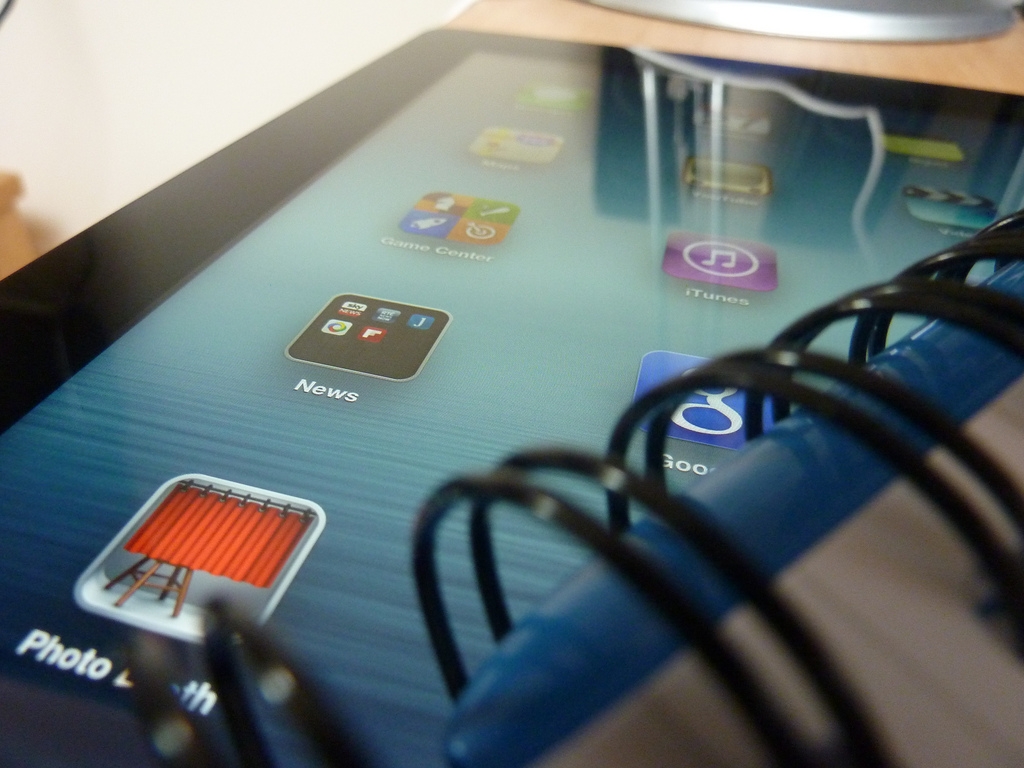As a child of the sixties I was no stranger to books and magazines featuring artists’ impressions of cities of the future. Sleek skyscrapers, elevated freeways and even personal jetpacks were all clearly going to be on offer; it was a case of when rather than if.
They indicated a clear optimism that the future was going to be better than the past and a belief that technology would be a key driver, presenting lifestyle choices that anyone in their right mind would seize. When these did arrive, they somehow seemed a little less glamorous and not quite as exciting. I’m still optimistic about the jetpacks though.

I think this resonates with ICT, which sometimes seems to arrive a little later than promised, not saving quite as much time as we’d thought and always needing a back-up. However we’re still sometimes promised game changers and, true to my optimistic roots, I’m willing to believe it.Enter the iPad. Not being used to Apple systems I was keen to explore and wanted to learn about the potential for use in the classroom. Three things won me over – Cox, the camera and Machinarium. “Wonders of the Universe”, already a TV series and a book, was introduced as an iBook. Seductive in its beauty and simplicity, it invited exploration. Pictures grow to fill the screen and up pops Brian himself in an exotic location to explain some tricky concept. What’s not to like? The camera was next – not so much that the images were stunning as the speed and ease with which they can be displayed. Anything in the classroom worthy of sharing, be it a chemical product from an experiment or a set of notes from a group task can be snapped and projected, without missing a beat.
Then came Machinarium. A colleague of mine is involved in a British Council Anglo-Indian project (UnBox 21) to develop the use of computer games in science teaching. Machinarium was one of his favourites; I asked my 18 year old son to road test it – last I saw of the iPad (and son) for the next four days. The game is a surreal little world of problems to be solved by using logic, science and technology; entirely devoid of language it nevertheless stimulates a lot of discussion amongst users.
As many of you will know, New Year is closely followed by the ASE Annual Meeting, this time in Reading (January 2nd – 5th). I’m running a number of sessions there for Collins including ones on iPads (as long as I get the kit back) and others on developing extended writing and effective revision strategies. If you’re there it would be great to see you. Either way, have a wonderful Christmas.
Ed Walsh
Ed Walsh is Science adviser for Cornwall Learning. In the past, he has worked extensively with teachers, schools, local authorities and national agencies in relation to science education.



